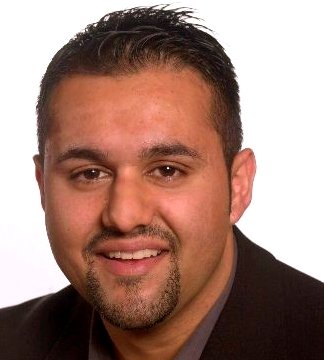- Home
- News & Blogs
- About Us
- What We Do
- Our Communities
- Info Centre
- Press
- Contact
- Archive 2019
- 2015 Elections: 11 new BME MP’s make history
- 70th Anniversary of the Partition of India
- Black Church Manifesto Questionnaire
- Brett Bailey: Exhibit B
- Briefing Paper: Ethnic Minorities in Politics and Public Life
- Civil Rights Leader Ratna Lachman dies
- ELLE Magazine: Young, Gifted, and Black
- External Jobs
- FeaturedVideo
- FeaturedVideo
- FeaturedVideo
- Gary Younge Book Sale
- George Osborne's budget increases racial disadvantage
- Goldsmiths Students' Union External Trustee
- International Commissioners condemn the appalling murder of Tyre Nichols
- Iqbal Wahhab OBE empowers Togo prisoners
- Job Vacancy: Head of Campaigns and Communications
- Media and Public Relations Officer for Jean Lambert MEP (full-time)
- Number 10 statement - race disparity unit
- Pathway to Success 2022
- Please donate £10 or more
- Rashan Charles had no Illegal Drugs
- Serena Williams: Black women should demand equal pay
- Thank you for your donation
- The Colour of Power 2021
- The Power of Poetry
- The UK election voter registration countdown begins now
- Volunteering roles at Community Alliance Lewisham (CAL)
France bans the veil
 Fiyaz Mughal OBE, Director of Faith Matters, writes about France introducing a ban on the veil from today and describes the damage such a ban would have if introduced in Britain.
Fiyaz Mughal OBE, Director of Faith Matters, writes about France introducing a ban on the veil from today and describes the damage such a ban would have if introduced in Britain.
The French ban on Muslim veils may seem like a drastic measure to most British liberals - a continental experiment incompatible with our own sense of multiculturalism. But we may be closer to following in Sarkozy's footsteps than we think, and doing so will be far more damaging in Britain than across the Channel.
The rise of French Islamophobia is not a phenomenon of secularism. Nor does it represent any uniquely French values. It is inspired by the same insecurities and electoral pressures that have driven our own politicians towards draconian terror laws and selective immigration policies. The rise of Marine Le Pen and her rejuvenated party, Front National, has forced the ailing Nicolas Sarkozy to shift to the right. We must not fool ourselves into thinking that our politicians will always remain immune to these forces.
The post-9/11 renaissance of nationalist groups like the BNP, UKIP and the EDL is difficult to ignore. Thankfully, these quasi-fascists do not currently muster as much support as Front National does in France, but then Nick Griffin and Nigel Farage are hardly as appealing figureheads for the new right as the media-savvy Le Pen.
Even without their input, there are other worrying signs that we are sleepwalking towards similar Islamophobic policies. In 2004 the High Court ruled against 15-year-old Shabina Begum, who was sent home from school for wearing a Jilbab. This is exactly how the veil debate in France was sparked back in 1989. More worryingly, public opinion appears to be swaying, and a Financial Times/Harris poll in 2010 found that 57 per cent of British people would support a similar ban in their country.
This shift is clearly having an impact on politics, most recently seen in David Cameron's announcement in February that multiculturalism has failed. His rhetoric acted as a warning to those who see tolerance of diversity as a unshakable pillar of our national psyche.
Active citizenship and cohesive communities are clearly desirable outcomes for our society. But Cameron's appeal for a more active, muscular liberalism does not reflect an ethos of integration, but one of cultural assimilation. The former is a pragmatic and empathetic response to the realities of a multicultural, multi-faith society. The latter calls for people of all cultures to subscribe to a hopelessly outdated image of what it is to be English, probably somewhere close to John Major's vision of cricket grounds, warm beer and old maids cycling to Holy Communion through the morning mist.
This is not the Britain that we live in. Britain is a diverse, multicultural country and this is its strength. Anyone who has worked extensively with Muslims at a grassroots level knows that any ban on religious clothing will considerably damage attempts at integration in this country. Forcing some Muslim women to dress like Westerners will not engender inclusion or make them feel any more 'British'. Instead it will fuel the sense of marginalisation that so often leads to radical ideologies. Ironically, it is this fear of extremism that fuels support for such policies.
And even if the French experiment is deemed a success, there are distinct features of the British Muslim population that will make a veil ban especially damaging to our society. Whilst French Muslims are largely of North African descent there is no such homogeneity in Britain. British Muslims come from across Asia, the Middle East, Africa and Europe, and they are increasingly frustrated at being treated as one. Religious clothing means very different things to these various groups, and a ban on the veil will not encourage them to effortlessly 'fit in' with the wider community. Instead, it will create a false sense of 'us and them' which we, unlike the French, still have a chance to bypass.
It is not too late for us to avoid the divisive policies that are sweeping through rightwing Europe. If we are to display Cameron's 'muscular liberalism', then it should be by standing up for the right of individuals to say, think and dress as they please, rather than just believing it.
Fiyaz Mughal OBE
Director of the interfaith organisation Faith Matters. Mr Mughal's organisation have recently gained widespread media coverage for recent reports into Muslim converts in the UK, the English Defence League and a directory of female-friendly mosques.
